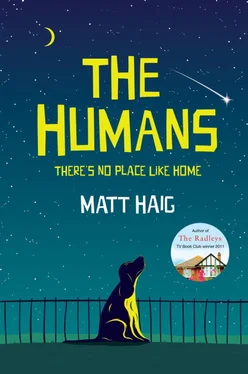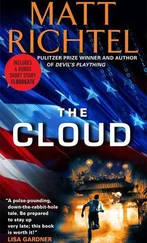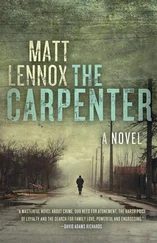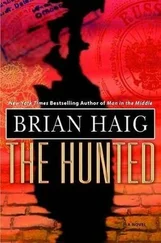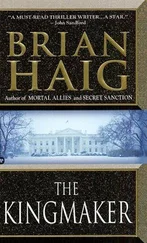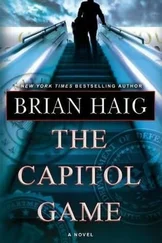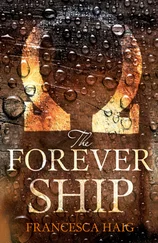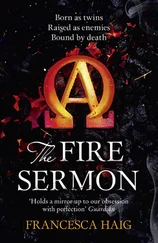It was ridiculous that I had ever failed to see it.
She was beautiful. A forty-one-year-old, poised delicately between the young woman she had been and the older one she would become. This intelligent, wound-dabbing historian. This person who would buy someone else’s shopping with no other motive than simply to help.
I knew other things now. I knew she’d been a screaming baby, a child learning to walk, a girl at school eager to learn, a teenager listening to Talking Heads in her bedroom while reading books by A.J.P. Taylor.
I knew she’d been a university student studying the past and trying to interpret its patterns.
She’d been, simultaneously, a young woman in love, full of a thousand hopes, trying to read the future as well as the past.
She had then taught British and European history, the big pattern she had discovered being the one that revealed that the civilisations that advanced with the Enlightenment did so through violence and territorial conquest more than through scientific progress, political modernisation and philosophical understanding.
She had then tried to uncover the woman’s place in this history, and it had been difficult because history had always been written by the victors of wars, and the victors of the gender wars had always been male, and so women had been placed in the margins and in the footnotes, if they had been lucky.
And yet the irony was that she soon placed herself in the margins voluntarily, giving up work for family, because she imagined that when she eventually arrived at her death-bed she would feel more regret about unborn children than unwritten books. But as soon as she made that move, she had felt her husband begin to take her for granted.
She had stuff to give, but it was ungiven; it was locked away.
And I felt an incredible excitement at being able to witness the love re-emerge inside her, because it was a total, prime-of-life love. The kind that could only be possible in someone who was going to die at some point in the future, and also someone who had lived enough to know that loving and being loved back was a hard thing to get right, but when you managed it you could see forever.
Two mirrors, opposite and facing each other at perfectly parallel angles, viewing themselves through the other, the view as deep as infinity.
Yes, that was what love was for. (I may not have understood marriage, but I understood love, I was sure of it.)
Love was a way to live forever in a single moment, and it was also a way to see yourself as you had never actually seen yourself, and made you realise – having done so – that this view was a more meaningful one than any of your previous self-perceptions and selfdeceptions. Even though, the big joke was, indeed the very biggest joke in the universe was, that Isobel Martin believed I had always been a human called Andrew Martin who had been born one hundred miles away in Sheffield, and not in fact 8653178431 light years away.
‘Isobel, I think I should tell you something. It is something very important.’
She looked worried. ‘What? What is it?’
There was an imperfection in her lower lip. The left side of it slightly fuller than the right. It was a fascinating detail on a face that only had fascinating details. How could I have ever found her hideous? How? How?
I couldn’t do it. Say it. I should have, but I didn’t.
‘I think we should buy a new sofa,’ I said.
‘That’s the important thing you want to tell me?’
‘Yes. I don’t like it. I don’t like purple.’
‘Don’t you?’
‘No. It’s too close to violet. All those short wavelength colours mess with my brain.’
‘You are funny. “Short wavelength colours.”’
‘Well, that’s what they are.’
‘But purple is the colour of emperors. And you’ve always acted like an emperor so…’
‘Is it? Why?’
‘Byzantine empresses gave birth in the Purple Chamber. Their babies were given the honorary title “Porphyrogenitos” which meant “Born to the Purple” to separate them from riff-raff generals who won the throne through going to war. But then, in Japan, purple is the colour of death.’
I was mesmerised by her voice when she spoke about historical things. It had a delicacy to it, each sentence a long thin arm carrying the past as if it were porcelain. Something that could be brought out and presented in front of you but which could break and become a million pieces at any moment. I realised even her being a historian was part of her caring nature.
‘Well, I just think we could do with some new furniture,’ I said.
‘Do you now?’ she asked, staring deep into my eyes in a mockserious way.
One of the brighter humans, a German-born theoretical physicist called Albert Einstein, explained relativity to dimmer members of his species by telling them: ‘Put your hand on a hot stove for a minute, and it seems like an hour. Sit with a pretty girl for an hour, and it seems like a minute.’
What if looking at the pretty girl felt like putting your hand on a hot stove? What was that? Quantum mechanics?
After a period of time, she leant towards me and kissed me. I had kissed her before. But now the lightening effect on my stomach was very like fear. Indeed, it was every symptom of fear, but a pleasurable fear. An enjoyable danger.
She smiled, and told me a story she had once read not in a history book but in a terrible magazine at the doctor’s. A husband and a wife who had fallen out of love had their own separate affairs on the Internet. It was only when they came to meet their illicit lovers that they realised they had actually been having an affair with each other. But far from tearing the marriage apart it restored it, and they lived more happily than before.
‘I have something to tell you,’ I said, after this story.
‘What?’
‘I love you.’
‘I love you, too.’
‘Yes, but it is impossible to love you.’
‘Thank you. Precisely what a girl likes to hear.’
‘No. I mean, because of where I come from. No one there can love.’
‘What? Sheffield? It’s not that bad.’
‘No. Listen, this is new to me. I’m scared.’
She held my head in her hands, as if it were another delicate thing she wanted to preserve. She was a human. She knew one day her husband would die and yet she still dared to love him. That was an amazing thing.
We kissed some more.
Kissing was very much like eating. But instead of reducing the appetite the food consumed actually increased it. The food wasn’t matter, it had no mass, and yet it seemed to convert into a very delicious energy inside me.
‘Let’s go upstairs,’ she said.
She said the word suggestively, as though upstairs wasn’t just a place but an alternate reality, made from a different texture of space-time. A pleasure land we would enter via a worm hole on the sixth stair. And, of course, she was absolutely right.
Afterwards, we lay there for a few minutes, and then she decided we needed some music.
‘Anything,’ I said, ‘but The Planets .’
‘That’s the only piece of music you like.’
‘Not anymore.’
So she put on something called ‘Love Theme’ by Ennio Morricone. It was sad, but beautiful.
‘Can you remember when we saw Cinema Paradiso ?’
‘Yes,’ I lied.
‘You hated it. You said it was so sentimental you wanted to throw up. You said it cheapens emotion to have it exaggerated and fetishised like that. Not that you’ve ever wanted to watch emotional things. I think, if I dare say it, you have always been scared of emotion, and so saying that you don’t like sentimentality is a way of saying you don’t like feeling emotion.’
‘Well,’ I said, ‘don’t worry. That me is dead.’ She smiled.
Читать дальше
